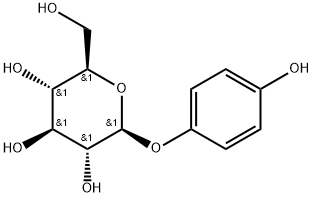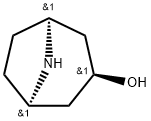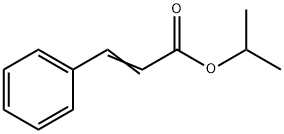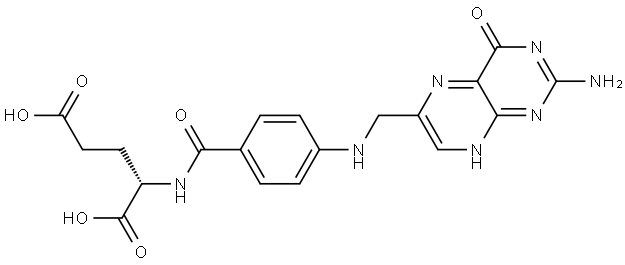Kojic acid dipalmitate
- CAS NO.:79725-98-7
- Empirical Formula: C38H66O6
- Molecular Weight: 618.93
- MDL number: MFCD23140972
- EINECS: 207-922-4
- SAFETY DATA SHEET (SDS)
- Update Date: 2025-12-17 09:50:05

What is Kojic acid dipalmitate?
Description
Kojic acid is a widely used skin lighten-ing agent as it inhibits catecholase activity of tyrosinase. Derivatives of kojic acid such as kojic acid dipalmitate are easilyabsorbed through skin and are more effective than kojic acid. kojic acid dipalmitate is an effective tyrosinase inhibitor that stunts melanin production, making it a powerful skin whitening agent. It can balance skin tones, fade dark spots, and eliminate free radicals.
Chemical properties
Kojic acid dipalmitate is a White to pale yellow powder, Soluble in oil, alcohol, mineral oil and esters (ethyl acetate). It is light and heat stable, while kojic acid tends to oxidize over time.
Kojic acid dipalmitate is stable within a wide pH range of 4-9, It is more easily absorbed into skin when it is incorporated into a cream as compared with kojic acid.
The Uses of Kojic acid dipalmitate
Kojic Acid Dipalmitate (KAD) is a diesterified derivative of Kojic Acid. It is considered to be superior to Kojic Acid in its whitening ability and is more stable than Kojic Acid in cosmetic formulations.
What are the applications of Application
kojic acid dipalmitate is a diesterified derivative of tretinoin. It is considered superior to tretinoin in its whitening ability and is more stable than tretinoin in cosmetic formulations. It is commonly used in sunscreens and after-sun products, colour cosmetics, whitening products, anti-ageing products, creams and lotions.
Benefits
Kojic acid dipalmitate has the advantage that it does not complex with metal ions, does not change colour, is light and heat stable and is compatible with most cosmetic ingredients. Therefore, in addition to whitening the skin, it has anti-aging properties, treats melasma, reduces scars, and has antibacterial (antifungal) benefits.
Mechanism of action
Kojic acid dipalmitate is able to inhibit skin pigmentation by inhibiting tyrosinase activity. Its ability to inhibit melanin formation makes it effective in whitening darker skin or darker skin areas. Its effect is enhanced when combined with glucosamine derivatives such as N-acetylglucosamine (NAG).
What are the applications of Application
Kojic Dipalmitate is a stable ester derived from kojic acid, which is recognized for its skin-whitening properties. It functions by inhibiting the activity of tyrosinase, an enzyme crucial in melanin formation, with an efficacy rate that can reach up to 80%. This makes it an effective agent in preventing melanin production, thereby contributing to skin lightening. Compared to kojic acid, which can be unstable and subject to color changes over time, kojic dipalmitate maintains its stability for an extended period. Additionally, it is compatible with a wide range of preservatives and sunscreens, making it a versatile ingredient in skincare formulations.
Properties of Kojic acid dipalmitate
| Melting point: | 92-96°C |
| Boiling point: | 684.7±55.0 °C(Predicted) |
| Density | 0.99±0.1 g/cm3(Predicted) |
| storage temp. | Sealed in dry,Room Temperature |
| form | powder to crystal |
| color | White to Almost white |
| CAS DataBase Reference | 79725-98-7(CAS DataBase Reference) |
Safety information for Kojic acid dipalmitate
Computed Descriptors for Kojic acid dipalmitate
| InChIKey | SGEADTGIZKXPIP-UHFFFAOYSA-N |
| SMILES | C(OC1C(=O)C=C(COC(=O)CCCCCCCCCCCCCCC)OC=1)(=O)CCCCCCCCCCCCCCC |
Kojic acid dipalmitate manufacturer
Triveni Interchem Private Limited (Group Of Triveni Chemicals)
New Products
4,4-Difluoropiperidine hydrochloride tert-butyl 9-methoxy-3-azaspiro[5.5]undecane-3-carboxylate Indole Methyl Resin N-Isopropylurea N,N-Dicyclohexylcarbodiimide(DCC) MELDRUMS ACID 5-METHYLISOXAZOLE-4-CARBOXYLIC ACID Magnessium Bis glycinate Zinc ascorbate 1-bromo-2-butyne 2-acetamidophenol 9(10H)-anthracenone Erythrosin B, 4-Piperidinopiperidine 2-((4-morpholinophenylamino) (methylthio) methylene) malononitrile 2,4-dihydroxybenzaldehyde 3-(4-morpholinophenylamino)-5-amino-1H-pyrazole-4-carbonitrile Methyl 2-methylquinoline-6-carboxylate 2,6-dichloro-4-nitropyridine 4-Bromo-2-chlorobenzonitrile 2-(benzylamino)acetic acid hydrochloride 4-(tert-Butoxycarbonylamino)but- 2-ynoic acid 3,4-dihydro-2H-benzo[b][1,4]dioxepine 1-Phenyl-1-cycloprppanecarboxylicacidRelated products of tetrahydrofuran








You may like
-
 Kojic acid dipalmitate CAS 79725-98-7View Details
Kojic acid dipalmitate CAS 79725-98-7View Details
79725-98-7 -
 Kojic acid dipalmitate 98.00% CAS 79725-98-7View Details
Kojic acid dipalmitate 98.00% CAS 79725-98-7View Details
79725-98-7 -
 Kojic Acid Dipalmitate, PowderView Details
Kojic Acid Dipalmitate, PowderView Details
79725-98-7 -
 Kojic Acid DipalmitateView Details
Kojic Acid DipalmitateView Details
79725-98-7 -
 Solid Kojic Acid Dipalmitate, Packaging Type: Fiber DrumView Details
Solid Kojic Acid Dipalmitate, Packaging Type: Fiber DrumView Details
79725-98-7 -
 Powder Kojic Acid Dipalmitate, Packaging Size: 1 kgView Details
Powder Kojic Acid Dipalmitate, Packaging Size: 1 kgView Details
79725-98-7 -
 Kojic Acid DipalmitateView Details
Kojic Acid DipalmitateView Details
79725-98-7 -
 Kojic Acid Dipalmitate, 1kgView Details
Kojic Acid Dipalmitate, 1kgView Details
79725-98-7
